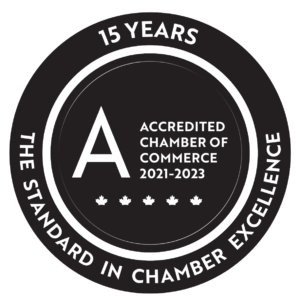Since the beginning of the COVID-19 pandemic, the Government of Canada has put Canadians first, providing the support they need to continue to make ends meet while staying safe and healthy. As we gradually and safely restart our economy, the government is continuing to support Canadians through the next phase of the recovery.
Deputy Prime Minister and Minister of Finance, Chrystia Freeland, and the Minister of Employment, Workforce Development and Disability Inclusion, Carla Qualtrough, today announced changes to the Employment Insurance (EI) program and new income support benefits that will better support all Canadians. They also announced that in preparation for this transition and to ensure support continues for Canadians whose employment has been impacted by the pandemic, the Canada Emergency Response Benefit (CERB) will be extended by an additional four weeks to a maximum of 28 weeks. This means that for the many Canadians expecting to exhaust their CERB benefits at the end of August, they will now be able to access an additional month of support.
When Canadians needed support the most, the government introduced the CERB, which helped more than 8.5 million people pay their bills during this challenging time. As we safely restart our economy, many of those Canadians will still need support while they continue to look for work. That is why the government will transition people who have been receiving the CERB to a more flexible and generous EI program for those who qualify, which will provide them additional features and tools to get back into the workforce.
The COVID-19 pandemic may have had a negative impact on a worker’s weekly earnings, either because they lost their job or saw their hours of work reduced. To give Canadians seeking employment the support they need to get back on their feet, the government is making changes to the EI program. EI will now be available to more Canadians, including those who would not have qualified for EI in the past, adding more than 400,000 people into the program.Those receiving EI will be eligible for a taxable benefit rate of at least $400 per week, or $240 per week for extended parental benefits, and regular benefits will be accessible for a minimum duration of 26 weeks. The government will continue to work with provinces and territories to ensure Canadians receiving EI benefits have access to skills training and employment supports, to help them get back to work.
The government will also freeze the EI insurance premium rates for two years, so Canadian workers and businesses will not face immediate increases to costs and payroll deductions due to the additional expenses resulting from the pandemic.
Additionally, to ensure Canadians receive the support they need during these challenging times, we are proposing implement three new benefits:
- The Canada Recovery Benefit (CRB) will provide $400 per week for up to 26 weeks, to workers who are self-employed or are not eligible for EI and who still require income support and who are available and looking for work. This benefit will support Canadians whose income has dropped or not returned due to COVID-19. The benefit will allow Canadians to earn more income while on claim as well as include links to Job Bank, Canada’s national employment service, with career planning tools for those seeking employment. In addition, the government will be working with provinces and territories to share information to ensure that Canadians have access to tools and training opportunities to successfully return to the workforce.
- The Canada Recovery Sickness Benefit (CRSB) will provide $500 per week for up to two weeks, for workers who are sick or must self-isolate for reasons related to COVID-19.
- The Canada Recovery Caregiving Benefit (CRCB) will provide $500 per week for up to 26 weeks per household, for eligible Canadians unable to work because they must care for:
- a child under age 12 due to the closures of schools or daycares because of COVID-19.
- a family member with a disability or a dependent because their day program or care facility is closed due to COVID-19.
- a child, a family member with a disability, or a dependent who is not attending school, daycare, or other care facilities under the advice of a medical professional due to being at high-risk if they contract COVID-19.
The Government intends to introduce new legislation to support the implementation of the new benefits.
By returning to the EI program, and introducing new complementary recovery benefits, we are ensuring Canadians have access to better supports that will help them through the next phase of our recovery. As we gradually and safely restart our economy, the Government of Canada will continue to put Canadians first, so we can move forward and build a Canada that works for everyone.




